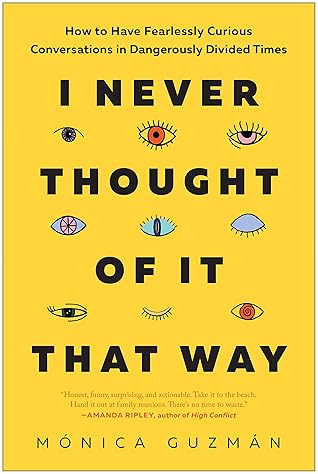More on this book
Community
Kindle Notes & Highlights
Read between
December 26, 2022 - April 4, 2023
Sit back and relax, ’cause I’ve got your curiosity starter kit right here, broken down into four steps I’ve picked up from fifteen years of being curious for a living,
1.Mind the gap 2.Collect knowledge 3.Reject easy answers 4.Embrace complexity
If you don’t know anything about something, you can’t possibly know what to ask about it. Which brings us to the second key step to channeling your curiosity: before you can see a gap between your existing knowledge and the knowledge you want, you have to have some, well, existing knowledge.
As the legendary broadcast journalist Edward R. Murrow once quipped, “Anyone who isn’t confused doesn’t really understand the situation.”
Not just so we can know, like, how many steps are in the old Pantheon in Rome, he says. But also to “rub and polish our brains against those of others.” Rub and polish our brains against those of others.
My favorite word in Spanish has no translation in English. It’s the word “sobremesa.” It refers to the conversation that follows a meal while everyone’s still sitting at the table (“sobre” = over; “mesa” = table).
The adults would trade their plates for ashtrays, their Cokes for Nescafé instant coffees. That’s when their conversation grew. It turned to work, current events, everyone’s lives, occasionally to my parents and how the hell it’s going, raising me and my little brother, Bernardo, in the States.
Conversation is by far the most powerful tool for understanding people across divides.
I learned not only that I could trust each interview to take us where we needed to go but that I should, because that takes the conversation in surprising new directions, leaves more room for the people I talk with to share deeper stories,
a bridging conversation succeeds in leaving room for our questions, it addresses our tensions, too, which levels everything up by making it easier to get curious.
a story you share from your life reminds someone of a related one from their own. They share that story, adding to the pool of knowledge collecting between you. You ask a question, seeing a gap open up between what you know and what you want to know. Their answer releases an INTOIT moment for you—a new insight. It fills you with energy. You’re pumped. And now this flood of questions streams into your mind, and the first one to answer is: Where do I start?
When we’re in conversation, we’re somewhere we’ve never been before. We’re meeting particular minds in particular states at some particular moment. You had to be there because there’s nowhere else like it in the world.
Posts like this are not meant to distract contributors from serious issues, Schultz told me, but to help them build the bonds that help them tackle tough issues well. The prompts are practice: they get people into friendly interactions, regardless of their views on other things, building up the camaraderie that can help them muscle through the tricky stuff.
simple prompts are good practice.Like sharing stories about eachothers pets, kid; or sports,to form a bondunrelated to tricky, deeper subjects
At some point, if you let it, curiosity about ideas morphs into curiosity about people.
Psychology researcher Jordan Litman has identified two types of
curiosity—which, in the broadest sense, is just a thirst for knowledge. But whether we are thirsty because our throat is parched or because there’s this delicious-sounding new drink
D-curiosity is careful, specific, and reactive. You’re more likely to tiptoe as you learn, dodging anxiety or tension
I-curiosity wants none of that. It’s adventurous, driven by an interest in closing an information gap, rather than the anxiety of leaving it open. You’ve got to build enough
that one driving question, once I could see it and name it, makes every interview not only fluid and fascinating, but productive. What made this woman drop everything to pursue such an audacious project that’s turning heads? Why do millions of people think this man’s unusual ideas are so exciting? Why does this new tax idea make these people really happy but these other people really mad?
know the moment is right. What kinds of conversational setups are good for suddenly asking someone for their take on gun control or trustworthy elections? When is the right time or place to bring up why in the world that person you know believes that thing they believe—
I don’t have yes or no answers on this. Instead, I offer you dials. Here. I hand you your very own portable conversation console, complete with five clearly labeled dials that jump to life, their needles shaking back and forth. Bring this to your next conversation
So long as you take a moment to ask yourself what these dials might show, you can make smarter choices about whether to spark or join exchanges. Ask: •What kind of time do


